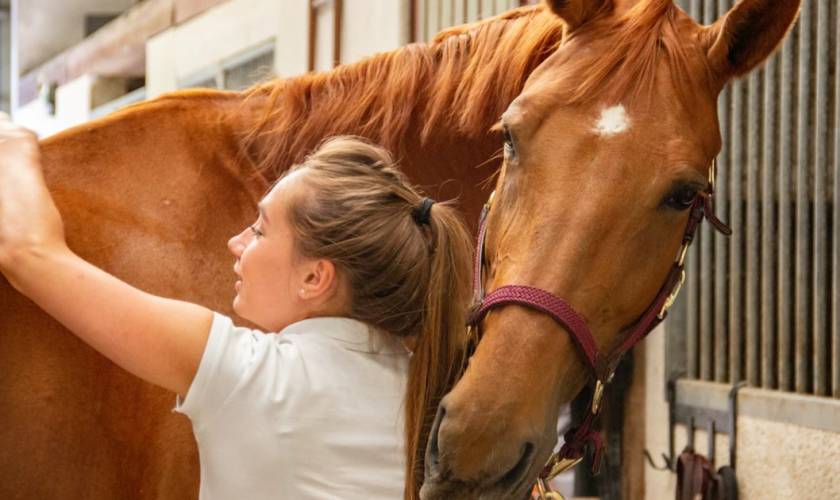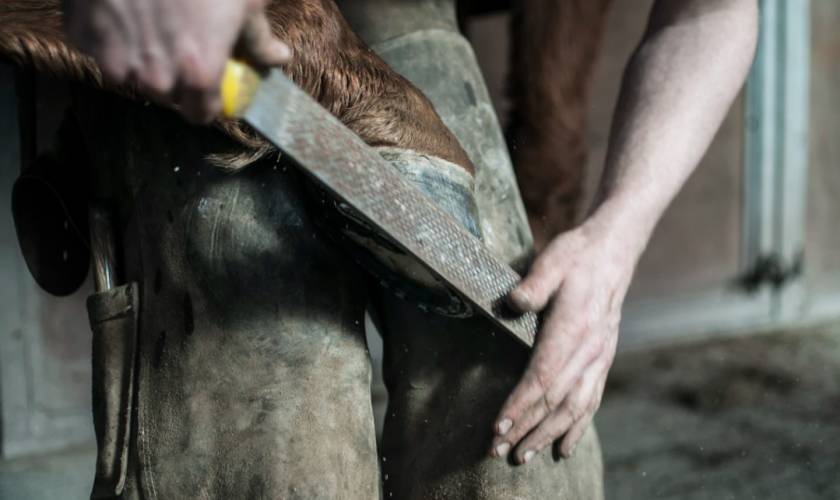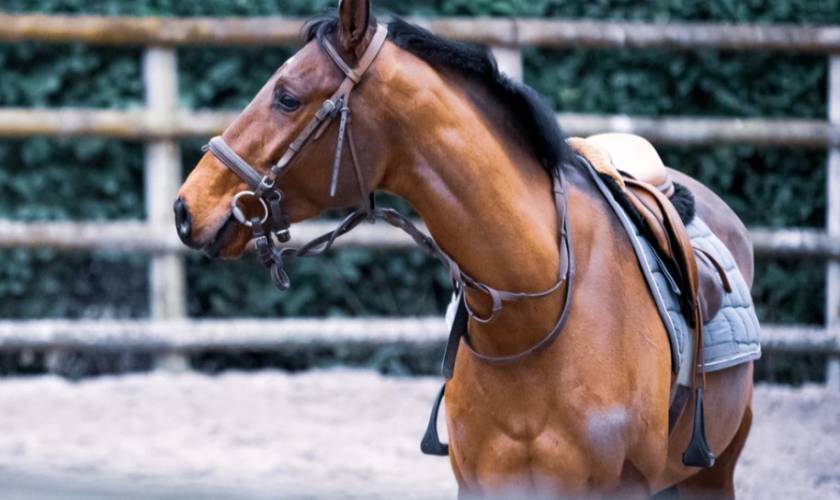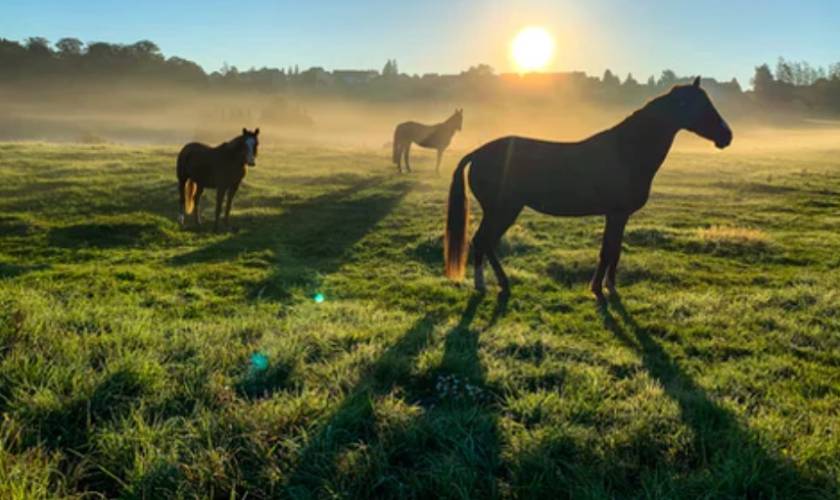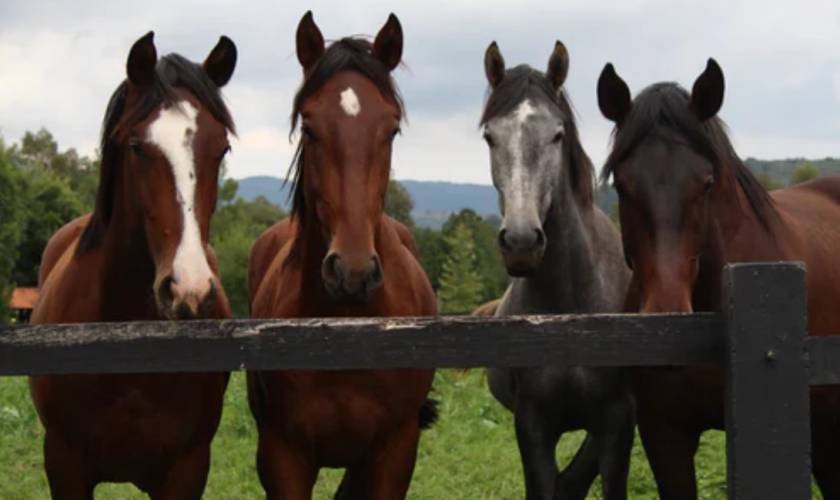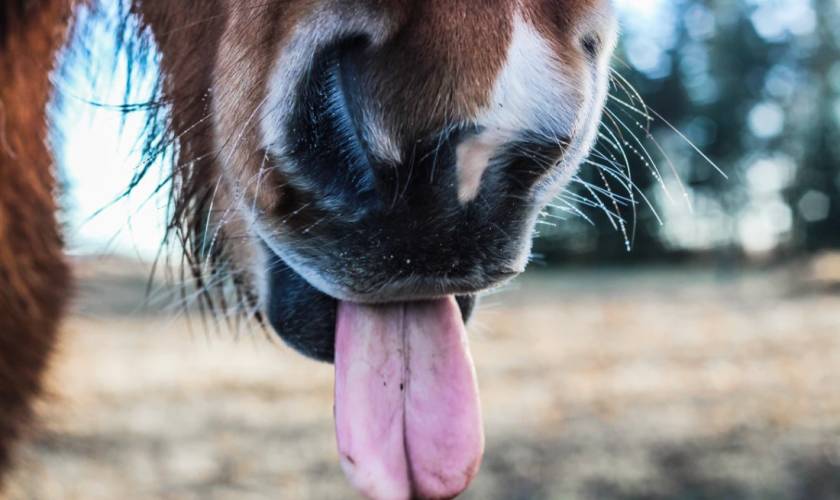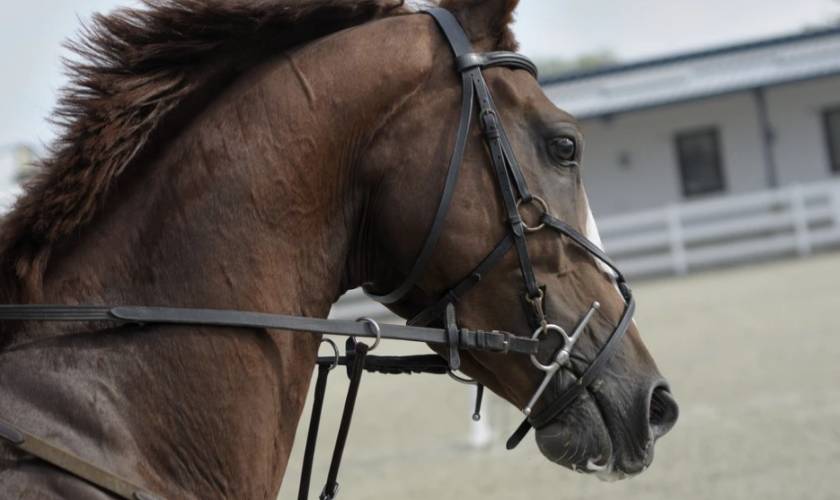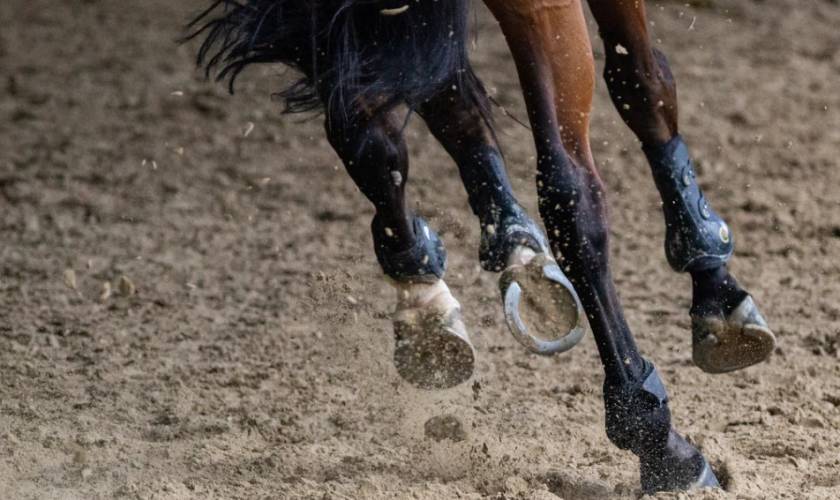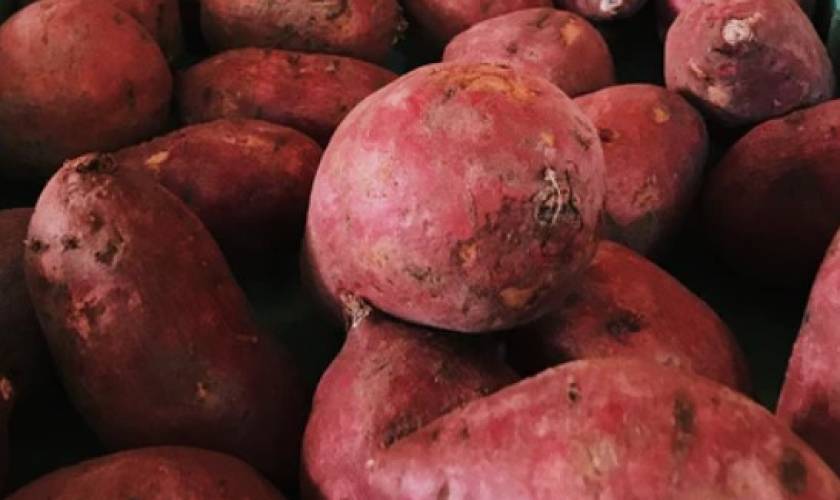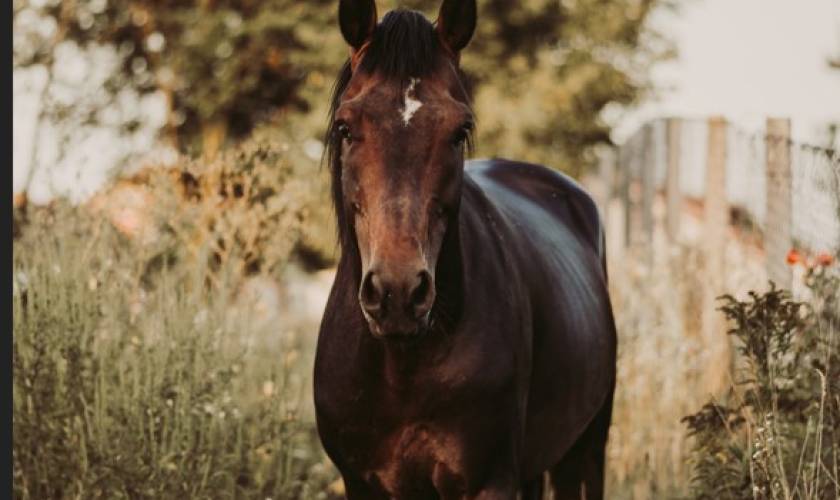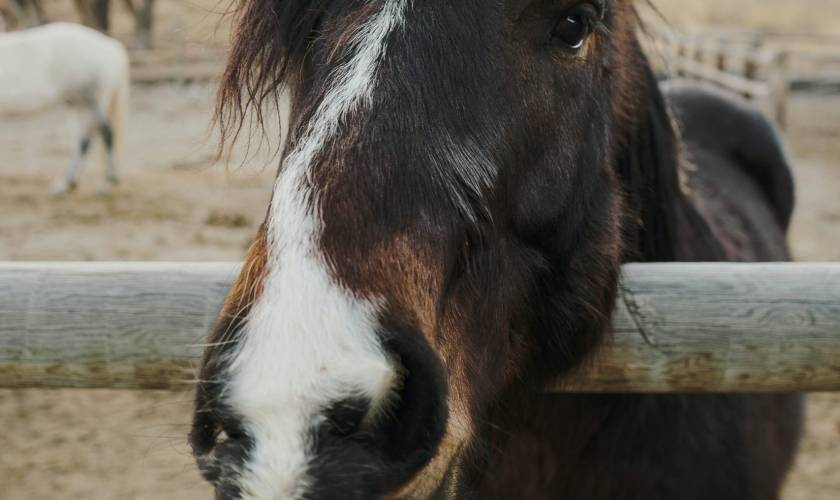Old-time horsemen relied on liquid suspensions of herbal extracts known as liniments to ease their horses’ aching muscles, tendons and joints. Their liniment recipes were often closely guarded secrets passed from generation to generation. Case in point: Absorbine Veterinary Liniment, which was invented by Mary Ida and Wilbur F. Young just before the turn of
Continue Reading...Unmounted Fitness Exercises for Mature Dressage Riders
When I do a clinic, participants over 40 often apologize for their age and confess that they wanted to come to a rider fitness clinic because their bodies don’t work like they used to. What’s ironic about the confession is that the majority of my clients and clinic participants are over 40. Where I live
Continue Reading...Sport Foals and The Farrier: First Visits
You could buy the most interesting foal in the auction, but what if it has a flaw where its feet or stance are concerned? Do not easily assume that the farrier will be able to make things right. What can breeders and buyers do in co-operation with the farrier? Farrier Ramon Koppendraaier from Lichtenvoorde has
Continue Reading...Your horse may be smarter than you think
Research suggests that horses are better able to interpret human gestures than previously thought, and some can even discern the credibility of information presented to them. A study conducted at Kyoto University builds on previous work showing that horses can understand human pointing cues—following a gesture indicating the location of a treat, for instance. To
Continue Reading...Washington Horse Tests Positive for Strangles
The Washington State Veterinarian’s Office confirmed on June 4 that a horse at a boarding facility in Spokane County, Washington, tested positive for strangles. One other horse on the property was exposed. The horse is under private veterinary care, and biosecurity measures have been implemented. EDCC Health Watch is an Equine Network marketing program that
Continue Reading...Third California Horse Tests Positive for EHV-1
On June 6, a 7-year-old Holsteiner mare in San Mateo County, California, tested positive for equine herpesvirus myeloencephalopathy (EHM, the neurologic form of equine herpesvirus type 1). She was referred to a veterinary hospital after developing a fever and mild neurologic signs and is currently isolated and quarantined. The mare participated at an event in
Continue Reading...Tongue Resistance in the Dressage Horse
Q: My 9-year-old gelding has a habit that seems to be getting worse instead of better. I have regular instruction—dressage basics with some jumping. But when I ask my horse to accept more contact, he hangs his tongue out of the right side of his mouth. The more contact I take, the more he sticks his
Continue Reading...When Do Racehorses Retire?
Horse racing has a long and rich history, being one of the most popular sports in the world. So, you may wonder, when do racehorses retire? In most cases, the career of a racehorse will only last a few years. Horse racing is a multi-billion dollar industry, with races all across the world. Every year, thousands
Continue Reading...Recognizing and Preventing Exhaustion in Horses
Exhausted horse syndrome refers to a range of metabolic and physiologic conditions that may occur when horses become fatigued. Affected horses may display a decrease in energy, appetite or appear stiff and weak. In serious cases, cardiac arrhythmias, shock, muscle damage, colic and diarrhea may develop. Horses that are under-conditioned, performing in endurance events or
Continue Reading...Feeding Sweet Potatoes instead of Carrots as Treat for your Horse?
Both sweet potatoes and carrots can be offered to your horses as treats. Carrots contain about 88% water, while sweet potatoes have about 77%, making sweet potatoes slightly more nutrient-dense. Both are relatively poor sources of protein because of the high water content (carrot, 0.9%; sweet potato, 1.6%; as fed). The primary nutrient difference lies
Continue Reading...10 Ways to Avoid Laminitis
Concentrated Rations: 1. Match your horse’s diet to his individual energy needs. Feed only as much high-energy concentrate as necessary. 2. When extra energy is required or your horse is losing weight, feed oats or a low-starch commercial mix fortified with up to two cups of vegetable oil. 3. Make corrective changes to his diet gradually
Continue Reading...Carbohydrates 101 for Horses
From glucose to frustose to lactose–not to mention a laundry list of other “oses”–carbohydrates can be incredibly confusing. But this group of sugar-based compounds, also called saccharides, comprises important energy sources for the horse. Therefore, understanding them and utilizing them in your horse’s diet are crucial. They also are a major component of forages, a
Continue Reading...
